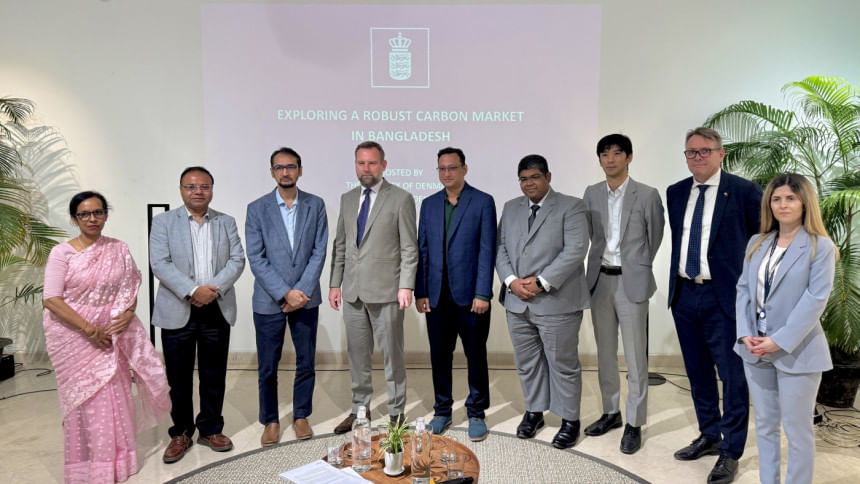Bangladesh can turn 'climate injustice' to opportunity, utilising carbon market: Danish Ambassador

Danish Ambassador to Bangladesh, Christian Brix Møller, has said that while Bangladesh contributes less than 0.4 percent of global greenhouse gas emissions, it faces some of the world's most severe climate risks.He described this as both "climate injustice" and a leadership opportunity, stressing that carbon markets could play a central role in turning challenges into sustainable and inclusive growth.The ambassador made the remarks on Thursday evening at a dialogue titled "Climate Talk: Explorin...
Danish Ambassador to Bangladesh, Christian Brix Møller, has said that while Bangladesh contributes less than 0.4 percent of global greenhouse gas emissions, it faces some of the world's most severe climate risks.
He described this as both "climate injustice" and a leadership opportunity, stressing that carbon markets could play a central role in turning challenges into sustainable and inclusive growth.
The ambassador made the remarks on Thursday evening at a dialogue titled "Climate Talk: Exploring a Robust Carbon Market in Bangladesh", hosted by the Embassy of Denmark at Bay Edge Gallery in Dhaka.
Møller reiterated Denmark's commitment to supporting Bangladesh's green transition, noting that success would require strong institutions, clear policies, and collaboration among government, the private sector, civil society, and international partners.
In his keynote presentation, Shaymal Barman, a carbon market specialist, said, "For countries like Bangladesh, establishing a credible carbon market can create pathways for economic growth while meeting climate goals such as Nationally Determined Contribution."
Mirza Shawkat Ali, director of Climate Change and International Convention at the Department of Environment, said, "Bangladesh is currently developing a Carbon Market Framework, and we hope we can attract investment, promote innovation, and ensure that climate initiatives promote low-carbon development and benefit the local communities and the economy."
The event brought together policymakers, businesses, academics, and development professionals to discuss opportunities and challenges in building a credible and inclusive carbon market.